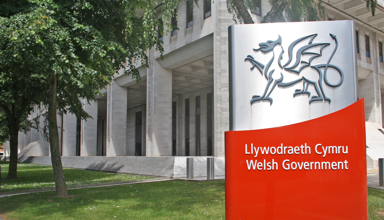A radical rethink is needed to help people in the most disadvantaged areas of Wales take part in sport and physical activities.
That’s the verdict of a Senedd Committee report, which highlights the worrying trend that the most vulnerable members of society report doing less activity than before the pandemic.
And the situation continues to worsen as the cost of living crisis forces people to choose between sport or eating – according to the Culture, Communication, Welsh Language, Sport, and International Relations Committee.
The Welsh Government already supports using sport as a preventative health measure - but Committee Chair Delyth Jewell MS says it’s now time to make that ambition a reality.
She said: “The Welsh Government must show stronger leadership if we are to improve access to sport. The commitments it has already made are a good start but do not go anywhere near far enough.
“That is why we are calling for the introduction of a new, national approach for participation in sport and physical activity in disadvantaged areas. It will also require significant additional funding to tackle some of the biggest challenges highlighted in our report.
“But barriers to participation in sport are not only financial – that’s why we also want to see facilities opened up in schools and in Wales’s most disadvantaged communities.
“We believe strongly that, if the recommendations in our report are implemented, the Welsh Government’s laudable ambition of sport being used as a tool for tackling health, education and numerous other inequalities will finally be fully realised.”
Many of the coaches and volunteers who gave evidence to the committee raised the problems caused by the increasing cost of living – especially for people living in the most disadvantaged areas.
Those concerns are echoed by Johanna Cotterrall, co-founder of Caerau Ely RFC. She says she has already seen the cost of living have an effect on attendance:
“I’ve seen children and parents leaving because they can’t afford it. Especially with Covid and the cost of living recently, people have been struggling to buy new kit for children to replace what they outgrew during lockdown. Or they can’t afford the petrol to get to games, so they just don’t turn up.
“We’ve given out over 100 pairs of boots since we restarted after Covid. We had a boot bank that people could use – but it’s empty now. What do we do? We can’t ask people to buy boots when they can’t afford food.
“It’s not inclusive. We don’t want sport to just be for the people who can afford it. It should be for everyone. The cost of living shouldn’t affect that.”
Sean Carey is director of Clock Cricket, a sport for elderly or less mobile players. He says that availability of suitable venues is often the biggest barrier:
“The main gripe people have is being able to get to the places we’re running the sessions – and that’s coupled with the cost. It makes our life much easier if there are established venues within the communities we go to.
“If people can get a bus, that helps – but it all adds to the cost. That’s why we’re keen to get out into different communities where we can help minimise those costs for people.”
Participation in sport and physical activity in disadvantaged areas : Read the report





